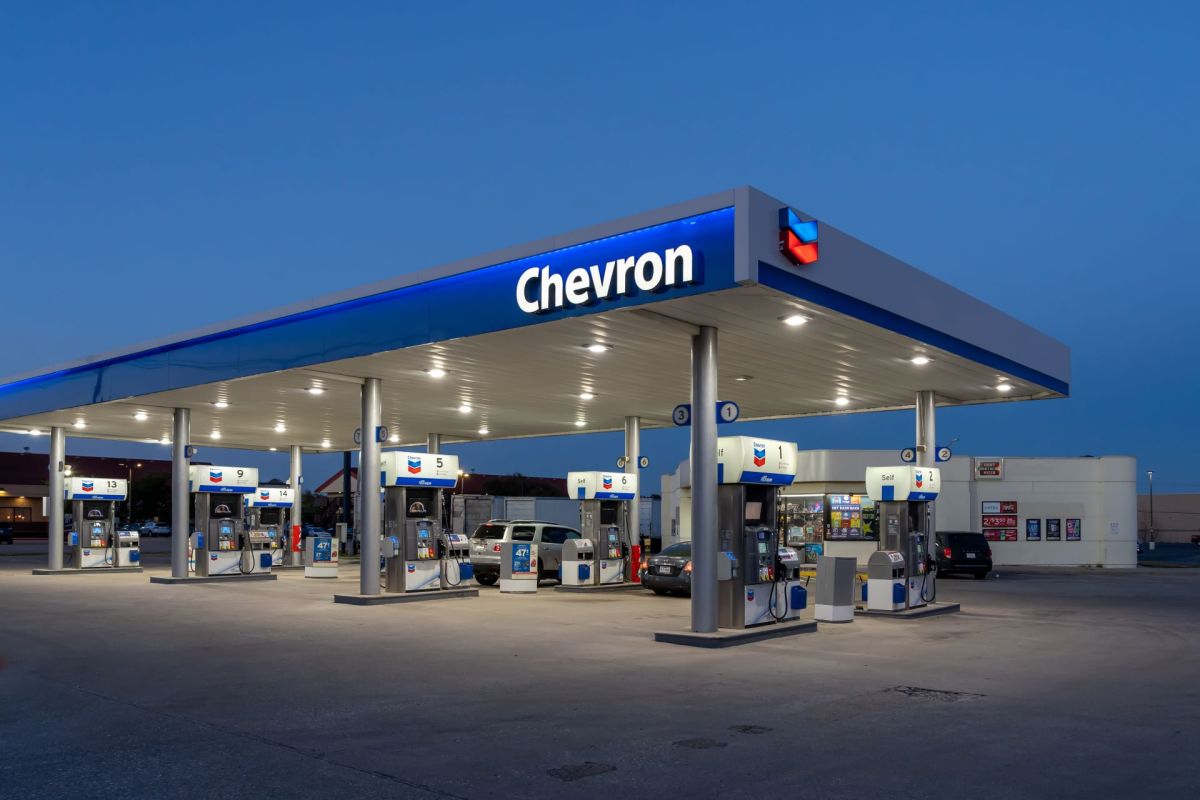Carbon offsets are one of the more controversial and confusing methods of addressing climate change.
To put it as simply as possible: If you are a company that is damaging the environment by producing a lot of planet-overheating pollution, carbon offsets allow you to pay money to a different company or organization that is supposedly helping you remove some pollution from the environment. In theory, this cancels out the harm you are doing.
The main problem with carbon credits, however, is that a lot of them are a bunch of lies, according to a new study from a watchdog group.
What's happening?
Recent research from nonprofit watchdog group Corporate Accountability focused on the carbon offsets purchased by oil and gas company Chevron. Chevron is the second-largest dirty energy company in the U.S. and has a stated goal of reaching "net zero upstream emissions" by 2050, which it is purportedly trying to accomplish largely by purchasing carbon credits.
But according to the research, "more than 90% of the carbon offsets Chevron has retired through the voluntary carbon market to 'cancel out' its emissions seem to be worthless," Corporate Accountability writes. "Presumed 'junk' until proven otherwise."
In order for a carbon credit to be sold (i.e., retired), it must first be certified by one of several companies that is sanctioned to do so. But an investigation by the Guardian earlier this year found that Verra, the industry leader in that field, routinely certifies credits that do not represent genuine carbon reductions and, in some cases, actively cause environmental harm.
Almost one-third of Chevron's carbon credit dealings are done through Verra, per the Guardian.
Similar allegations of greenwashing via worthless carbon credits have also been leveled against the oil company Shell, which also does business with Verra.
Why is this concerning?
Carbon credits are one of the only methods we currently have to hold companies accountable for the harm they cause to our planet. However, this research suggests that not only do they not work, they enable and embolden polluters to cause unlimited damage with no repercussions, all while claiming to help our planet.
In exchange for making allegedly meaningless payments to other for-profit companies, corporations like Chevron are able to continue their oil drilling expansion while also paying millions of dollars per year to lobbyists and politicians to ensure that new laws that protect our communities are squashed or watered down to the point of ineffectiveness.
TCD Picks » Quince Spotlight

"This essential report unmasks the tactics and lobbying used by Chevron in order to keep expanding its fossil fuel extraction operations on one hand, while telling the world that it's offsetting its emissions by investing in projects in Colombia that we know don't work," Andrés Gómez Orozco, an engineer in a Colombian environmental group, told the Guardian.
What can be done?
On an individual basis, there are many things we can do to limit the harm done by these corporations.
We can stop buying gas-powered cars. The electric vehicle (EV) market is growing, and prices are coming down, especially for EVs that are eligible for a tax credit. With charging stations popping up all over the country, owning an EV is becoming more accessible.
You can also look at alternative ways to power your home, like solar panels — or install an energy-efficient heat pump to cut the costs of heating and cooling. Even limiting the amount of single-use plastics in your life will help.
All of these steps can help decrease the amount of dirty energy we depend on in our society, and not only that, most of them will save you money in the long run.
Join our free newsletter for cool news and actionable info that makes it easy to help yourself while helping the planet.













